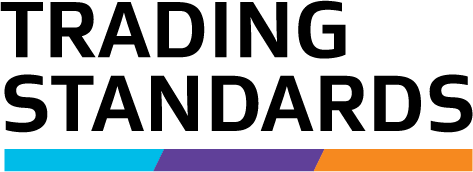What equipment your business can use
Under the weights and measures legislation, your weighing or measuring equipment must be of an approved type and stamped with a mark of verification.
Equipment in use for trade
If you're manufacturing, importing, packing or selling goods by weight, measure or number, the equipment you use to determine the quantity of goods is deemed to be in ‘use for trade’. This encompasses any weighing or measuring equipment that's used to determine a quantity (weight, measure or number) and to establish a basis for a financial transaction between 2 parties.
This includes a wide range of trading environments from shops, service stations, processing and manufacturing facilities to stalls, itinerant vendors and internet-based traders.
Equipment must be of an approved type
All weighing or measuring equipment used for trade must be of an approved type (known as a 'type approval' or 'trade approved'). This is a certificate issued by Trading Standards, which confirms that the equipment:
- complies with the requirements of the weights and measures legislation
- is suitable for trade use, and
- will not facilitate fraud.
Only trade approved equipment can be stamped with the mark of verification.
Using equipment that's not approved
If you're found to be using weighing or measuring equipment for trade that is not of an approved type, the equipment may be seized by a Trading Standards Officer and you may face legal action.
Exceptions
Under Section 22 of the Weights and Measure Act 1987, type approval is not required for:
- automatic weighing machines, and
- automatic volumetric liquid dispensing machines.
Weights and Measures Act 1987 – Section 22(external link) — New Zealand Legislation
Equipment must be verified
All weighing and measuring equipment used for trade must be:
- verified by a Trading Standards Officer or an Accredited Person, and
- stamped with a mark of verification.
Visits from Accredited Persons
The mark of verification must:
- take the form of either:
- the letters ‘AP’ followed by the individual’s personal identification number, or
- the ‘crown stamp’, and
- be applied directly to the weighing and measuring equipment, either:
- stamped into a lead seal, or
- affixed by an adhesive, destructible label.
Examples of markings
Examples of markings image description
These examples of marks of verification include a label with an image of a Crown stamp and labels with the words 'Mark of Verification’ and ‘MOV', followed by the letters 'AP' and the individual’s personal identification number.
A business may also wish to consider a certificate of accuracy to ensure ongoing compliance with the weighing equipment.
Note
If your equipment has been repaired, remember to check that the seal or sticker is still intact.
Equipment that doesn't comply
If your equipment is tested by an Accredited Person and doesn't show the correct weight, they can decline to stamp the instrument with a mark of verification or issue a certificate of accuracy.
If this is the case, they will issue you with a notice of non-compliance, which means that:
- you can't legally use the equipment for trade, and
- we may take legal action if you continue to use the equipment.
Equipment can't be used after it has been issued with a notice of non-compliance until it's repaired, re-tested and verified by a Trading Standards Officer or Accredited Person.
Rejected equipment
If equipment is tested by a Trading Standards Officer and doesn't show the correct weight, they can reject it. Equipment can't be used after it's rejected until it's repaired, re-tested and verified by a Trading Standards Officer or Accredited Person. Continued use of non-compliant equipment may lead to prosecution under the Act.
Only a Trading Standards Officer can reject equipment. Rejected equipment is marked with a 6-pointed star. We advise you not to purchase second-hand equipment with this mark.
Penalties for breaching the weights and measures legislation
For more information see the Powers, offences and our enforcement strategy page.
Powers, offences and our enforcement strategy

